
Tristan and Isolde are the legendary characters of the medieval knightly novel of the 12th century. Parallels to the motifs of the novel are in the legends of the ancient Eastern, ancient, Caucasian, etc., but in the poetry of feudal Europe, this legend came in Celtic design, with Celtic names, with characteristic household features. By comparing the derivative versions, a number of researchers have reconstructed in basic terms the content and construction of the “prototype”. Tristan, the prince of Loonua, was soon orphaned and, hiding from the machinations of his stepmother, went to Tintagel – to the court of his uncle, Cornish King Mark, who carefully nurtured him and intended, because of his childlessness, to make him his successor.
Young Tristan renders a great favor to his new homeland by killing martial artist Morholult in the single combat, who collected a living tribute from Cornwall. He himself is seriously wounded by the poisoned weapons of Morhult, Tristan sits in the boat and swims at random in search of healing, which he receives in Ireland from blond Princess Izolda, skillful in healing. Later, when the vassals compel Mark to marry to obtain a legitimate heir, Tristan voluntarily searches for his bride and brings Isolde. But on the way he drinks with her mistakenly the love drink that her mother gave her to ensure a lasting love between her and her husband. On the ship between Tristan and Isolde sinful closeness arises. Before the wedding, Tristan experiences and appeals for advice to his tutor Guvernal. He says that on the first night, all the candles should be extinguished and King Branjen, servant of Isolde. So they do. The king never guessed the substitution.
Tristan and Isolde are bound by love as powerful as life and death. Between them there is a series of secret visits, but at last they are convicted and convicted. They run and long wander in the woods. Then Mark forgives them and returns Isolde to the court, but orders Tristan to retire. Many times from punishment and death they are saved by faithful Governal and Branjena. Tristan goes to Britain and performs a number of feats there. The King of Britain has sons Caerdin and Rivalan, and daughter Isolda Belorukaya. Once in a dream, Tristan recites the declaration of love to Isolde aloud. Caerdine is sure that Tristan talks about his sister, Isolde-Beloruka. He tells his father about this, and he gladly gives Tristan his daughter, Tristan does not dare refuse. A wedding feast was arranged – however, true to his feeling for the first Isolde, Tristan does not approach his wife. In one day Tristan is wounded with poisoned weapons and asks Caherdin, the son of the British throne, to go to the fair-haired Isolde with a plea to come and talk for the last time in his life with his beloved. They agreed that if Kaerdin succeeded in bringing Isolde, a white sail would be displayed on his ship, otherwise it would be black.
Tristan’s jealous wife, after having examined this, at the last moment tells the dying Tristan that a ship with a black sail appeared. Tristan turns to the wall and says: “I can no longer restrain my life,” three times shouting “Isolde, dear!” and dies. Isolde descends to the shore, lies next to the body of Tristan and dies of grief over the beloved. son of the British throne, go to the fair-haired Isolde with a plea to come and talk for the last time in his life with his beloved. They agreed that if Kaerdin succeeded in bringing Isolde, a white sail would be displayed on his ship, otherwise it would be black. Tristan’s jealous wife, after having examined this, at the last moment tells the dying Tristan that a ship with a black sail appeared. Tristan turns to the wall and says: “I can no longer restrain my life,” three times shouting “Isolde, dear!” and dies. Isolde descends to the shore, lies next to the body of Tristan and dies of grief over the beloved. son of the British throne, go to the fair-haired Isolde with a plea to come and talk for the last time in his life with his beloved. They agreed that if Kaerdin succeeded in bringing Isolde, a white sail would be displayed on his ship, otherwise it would be black.
They are buried in two neighboring graves on both sides of the apse of the temple in Tintagel, and the blackthorn, green and strong, fragrant with flowers, per night is thrown through the chapel and goes to the grave of Isolda. Three times the thorns are cut by the townspeople and three times it grows. Subsequently, King Mark learns of this miracle and forbids ever cutting off thorns. King Mark wanted to keep the Governor with Brangeson, but they did not want to stay. The governorate became King Loonua, whose heir was Tristan, and Branjena – his wife and queen.
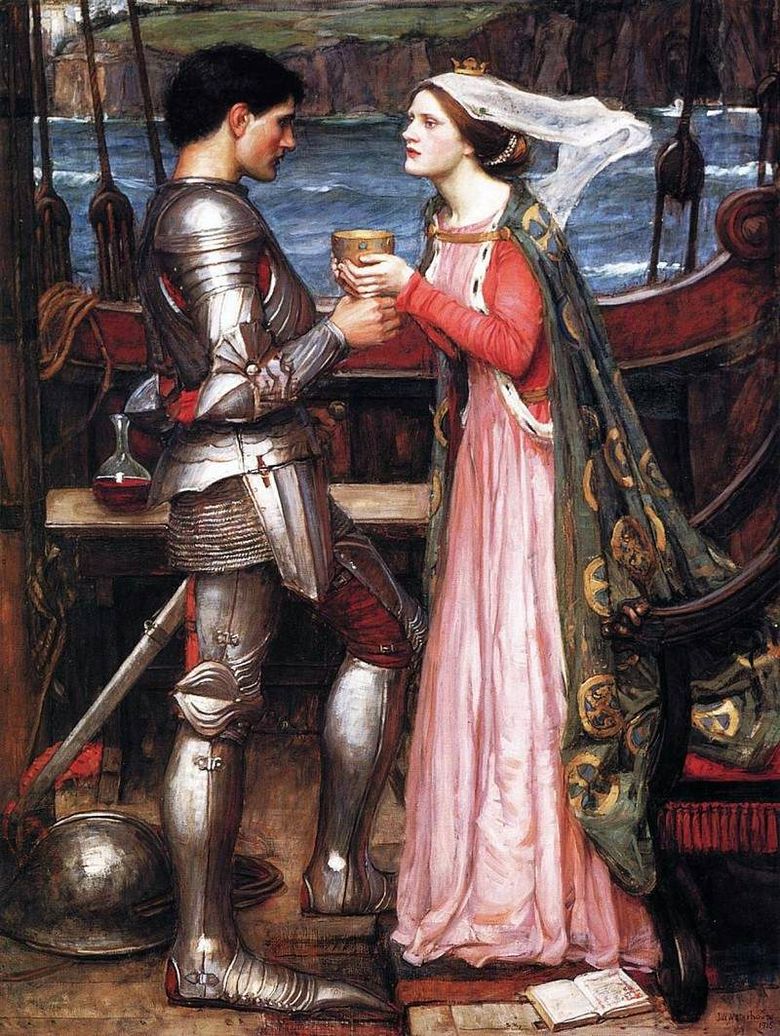 Tristan et Isolde – John Waterhouse
Tristan et Isolde – John Waterhouse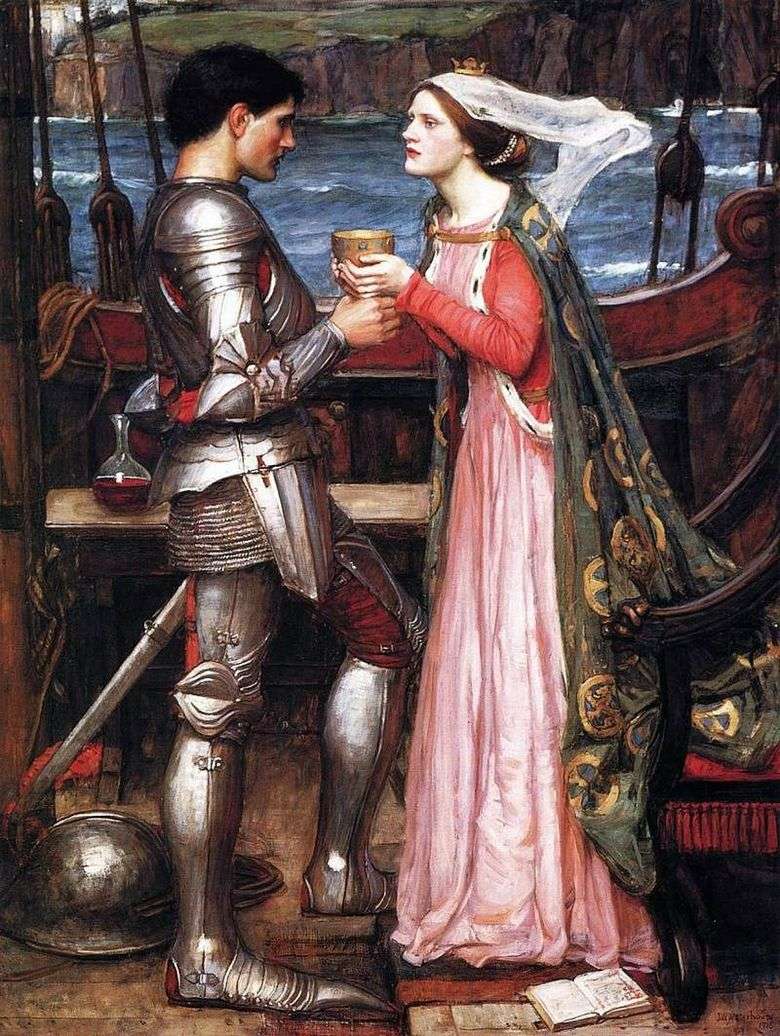 Tristán e Isolda – John Waterhouse
Tristán e Isolda – John Waterhouse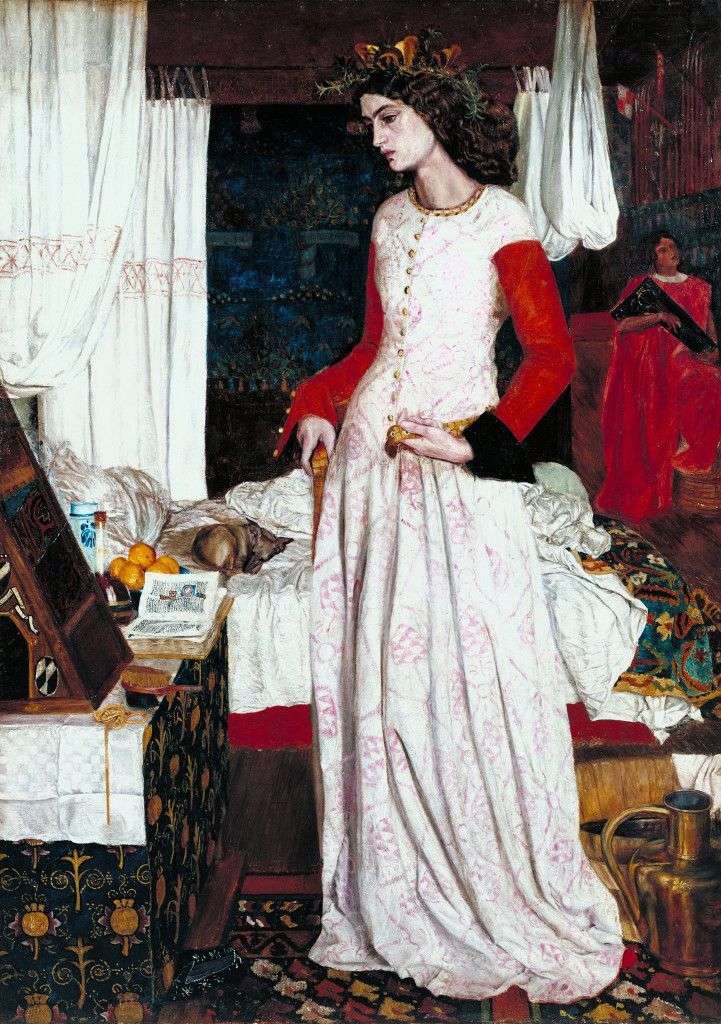 The Beautiful Isolde by William Morris
The Beautiful Isolde by William Morris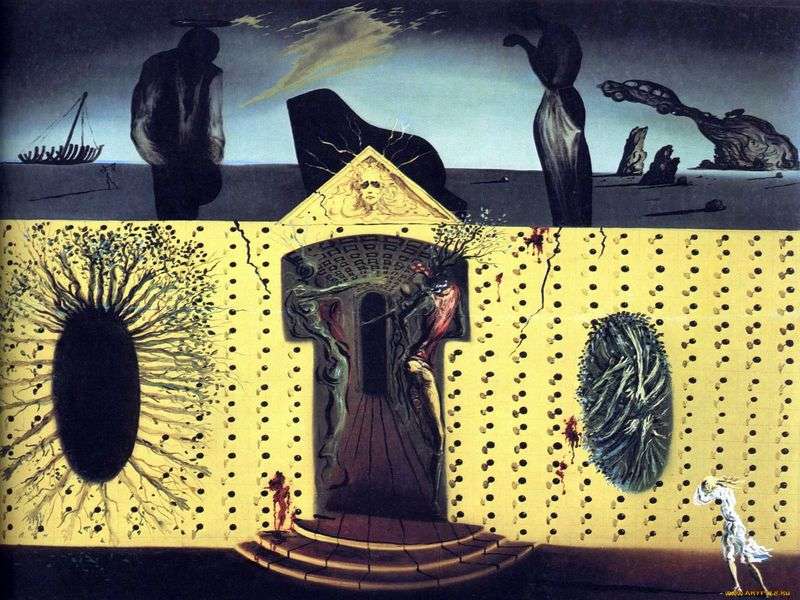 Mad Tristan by Salvador Dali
Mad Tristan by Salvador Dali Juliet by John Waterhouse
Juliet by John Waterhouse Miss Margaret Henderson by John Waterhouse
Miss Margaret Henderson by John Waterhouse Vanity by John Waterhouse
Vanity by John Waterhouse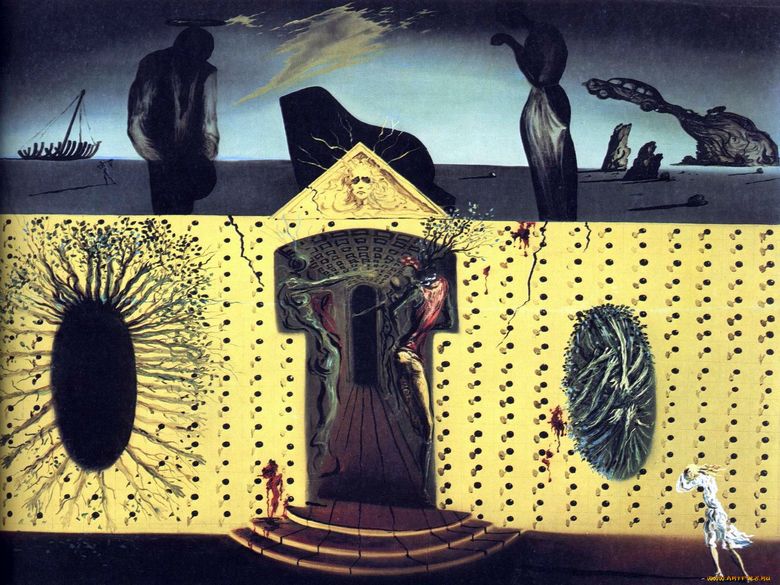 Mad Tristan – Salvador Dali
Mad Tristan – Salvador Dali